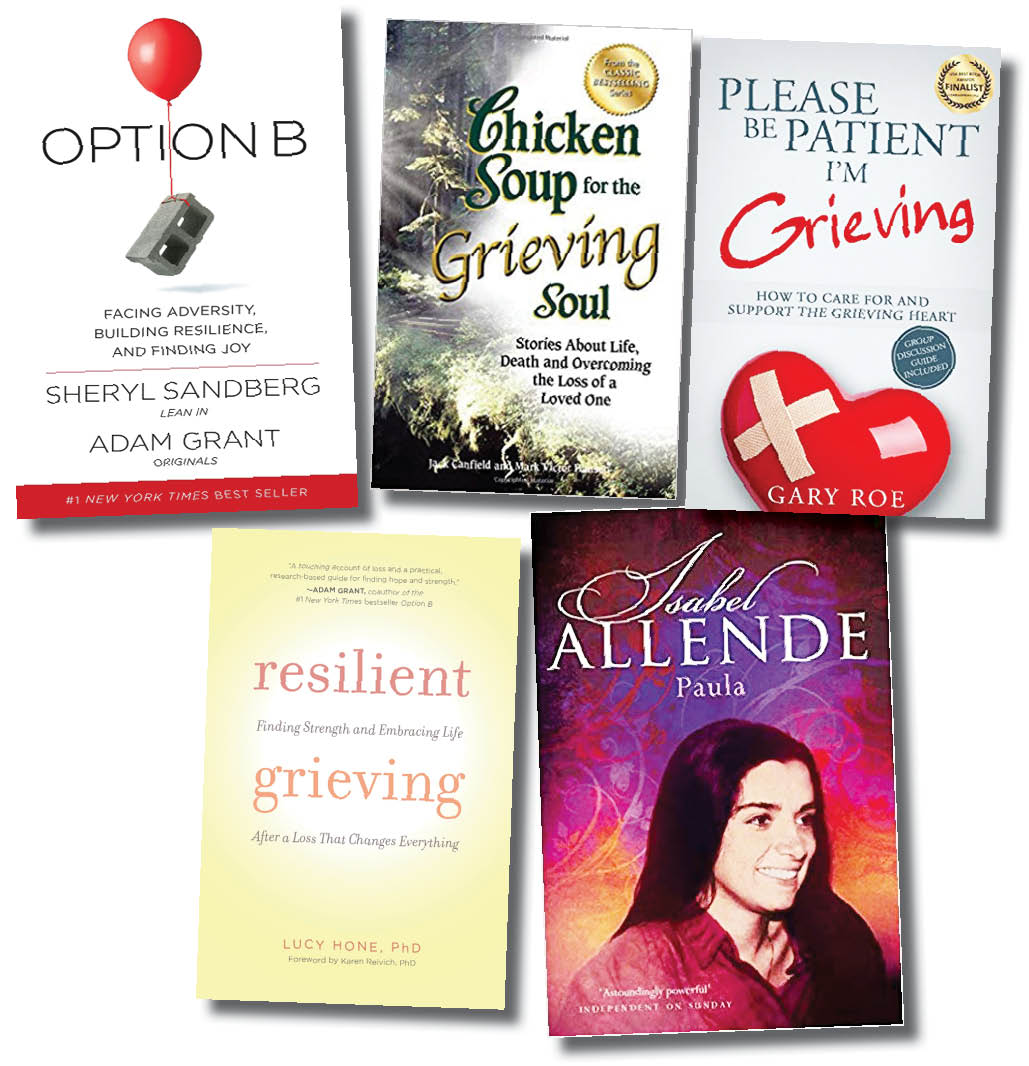Five books for those who grieve
With the rate of suicide and loss in our societal landscape, it’s time to work on healing and managing grief. It is also time to look at mental illness again and get our psychiatrists and psychologists talking about this disastrous trend. Also time to get us all ready to have a national conversation on this […]

With the rate of suicide and loss in our societal landscape, it’s time to work on healing and managing grief. It is also time to look at mental illness again and get our psychiatrists and psychologists talking about this disastrous trend. Also time to get us all ready to have a national conversation on this matter that tears families apart and destroys the very fabric of the society.
As we all gather round to decipher what is going on, let us remember the role of the internet in all of this. There is a rise in risky internet challenges like choking yourself to near death. As young people whose minds are not mature struggle to please the internet and show off, a teenager has killed himself in this attempt in the U.S. What are your children watching? What are they doing?
How fast are they dipping in and out of dangerous content? Now there are live streams of teenage suicides online and this can have a huge effect on our children. As a certificated guidance and counselling persona, I am concerned about bad content influencing our children and deeply grieved by the rise of suicide in our nation. It’s not enough to say it’s the economy.
While this is a contributory factor, we must learn to listen more, open our eyes and pay attention to family members or friends who are sad. When you ask how they are, please note their frustrated answers. It may be a message that something is going on. The jury is still out about how soon a child should have a phone. I read a comment by a psychologist who should know that 18 years should be the bar so every teenager just gets a simple phone until they are 18, period. The mind is very malleable and we must be careful what our children are exposed to.
While we are still grappling, let us pause for a moment and think of those who are grieving either from a loss to suicide, natural causes or accidents. Deaths are painful, grief is hard. Here are some books to help us make sense of our pain.
1. Option B by Sheryl Sandberg is my go to book for those dealing with the loss of a loved one. Written by Facebook’s chief operating officer and author of Lean in, this is the book for all those who are struggling with the loss of loved ones. It teaches resilience, how to rise from a dark place and how to heal. Having lost her husband while on holidays, Sheryl together with Psychiatrist, Adam Grant have written a book everyone must read.
2. Chicken Soup for the grieving Soul, stories about life death and overcoming the loss of a loved one by Jack Canfield and Mark Victor Hansen. From the Chicken soup series comes this lifesaver. When I lost my dearest mother many years ago, the chapters from this book contributed by different persons with different grieving experiences helped me to cope. Every single story was inspiring. From funny to sober to sensitive, I learnt that no matter how pained you are by grief and honestly it can be debilitating, you can rise from that place with faith and support and some magic from a highly recommended book.
3. Paula by Isabel Allende. Chilean American writer Isabel Allende writes a moving book to her dying daughter. Sitting beside her as she lay in coma, Isabel wrote notes/letters to her daughter every day. This helped her to cope with the sudden illness that claimed her daughter’s life also and helped her through the pain. This is an incredible book.
4. Please be patient, I am grieving, how to care for and support the grieving by Gary Roe. This Best Book awards finalist gives immense hope to the grieving heart and those who want to help. Multiple award winning author Roe is a speaker and grief specialist and a compassionate and trusted voice in grief recovery giving comfort and hope to wounded and hurting hearts in the last 30 years.
5. Resilient Grieving: Finding Strength and Embracing Life After a Loss that changes everything by Lucy Hone. Lucy works in the field of Resilient psychology helping ordinary people manage traumatic situations. Her book came to life after the incomprehensible loss of her daughter, Abi. With this loss, she knew she was fighting for the survival of her sanity and her family unit. The result is using her practice to deal with her tragedy and develop ways to support her family and find new ways of living without Abi. A truly inspiring and insightful book that will help all those who grieve.
Bonus books:
- The Year of Magical Thinking by Joan Didion.
- It’s Okay That You’re Not Okay by Megan Devine.
- Religious and faith-based books. Our hearts go out to all those who are grieving at this time. We wish you healing and God’s strength and peace.
